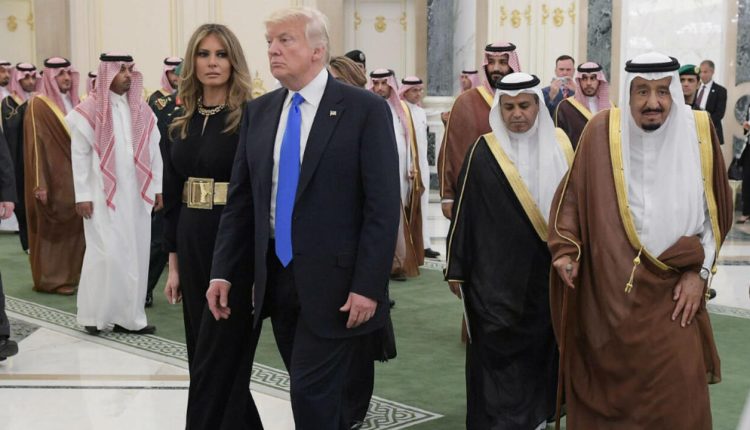Trump to Visit Saudi Arabia, Qatar, and UAE in Second Overseas Trip Since Return to Office
By Kardo Roj
WASHINGTON, U. S. (North Press) –
The White House announced on Tuesday that U.S. President Donald Trump will embark on a diplomatic tour of Saudi Arabia, Qatar, and the United Arab Emirates (UAE) from May 13 to 16, marking his second official overseas trip since taking office in January.
White House Press Secretary Karoline Leavitt confirmed the trip during a briefing, stating that the president’s itinerary includes high-level meetings in Riyadh, Doha, and Abu Dhabi. The announcement follows his scheduled attendance at the Vatican this coming weekend for the funeral of Pope Francis.
The visit to the Gulf states is expected to focus on regional security, energy cooperation, and the future of U.S. engagement in the Middle East. In earlier comments to reporters at the White House, President Trump hinted at the trip, saying, “There’s a visit to Saudi Arabia likely next month… we’ll also be in Qatar, and maybe a few more countries. The UAE is very important, so we’ll certainly stop in the Emirates and Qatar.”
Observers in North and East Syria are watching the development closely. While the itinerary does not include Syria, U.S. policy in the region remains closely tied to its relationships with Gulf allies. The Autonomous Administration of North and East Syria (AANES) and the Syrian Democratic Forces (SDF), which have played a pivotal role in countering ISIS and ensuring stability in areas outside Syrian government control, continue to rely on the international coalition—led by the U.S.—for political and military support.
Washington’s engagement with Gulf states has historically influenced its military presence in Syria. Any shifts in security arrangements or regional commitments discussed during the trip could have ripple effects across northeast Syria, where the SDF maintains critical pressure on ISIS remnants and works to preserve relative stability despite threats from various armed factions, including those backed by Ankara.
As Washington prepares to reassert its role in the Middle East, the outcomes of Trump’s trip could shape U.S. foreign policy for the coming years. For AANES and the SDF, sustained support from the U.S. and its Gulf allies is crucial to maintaining gains achieved over years of difficult counterterrorism operations.

